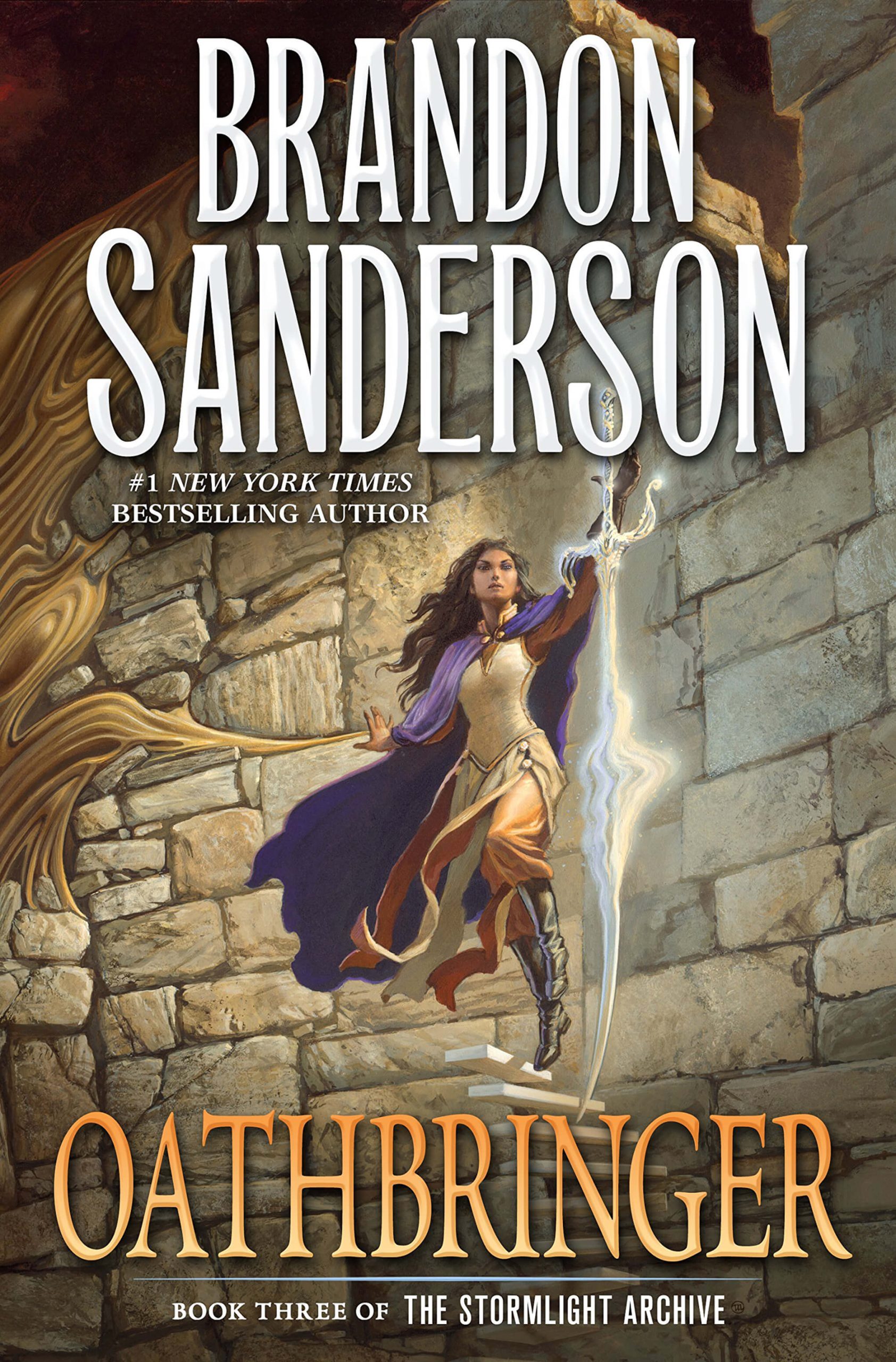Review: Brandon Sanderson’s “Oathbringer”
by Miles Raymer

Brandon Sanderson’s Oathbringer is the third installment in his Stormlight Archive series. It continues the story of Dalinar, Kaladin, and Shallan, along with an enormous and ever-expanding cast of supporting characters. In Oathbringer, as a new Desolation dawns, Dalinar’s attempt to unite all the nations of Roshar against their common enemy takes center stage, along with his efforts to unlock the secrets of Urithiru, the mysterious mountain stronghold discovered at the end of the last book. Our heroes gain strength as they continue their quest to refound the Order of The Knights Radiant, but they also face daunting new challenges such as the Everstorm, the Unmade, and Odium himself.
If the previous paragraph makes almost no sense to you, I get it. Sanderson has created a fantasy world so complex and diverse that it essentially requires readers to learn an entirely new vocabulary to grasp what’s going on. The process of internalizing Roshar’s history, language, and cultural traditions sometimes feels fun and exciting, and sometimes feels frustrating and cumbersome. I definitely think the effort is worth the payout, at least so far, but these books require a major commitment of time and focus. The prose, at least, is mercifully accessible.
Each book introduces new worldbuilding elements, and Oathbringer has some great ones. New enemies called “the Unmade”––ancient spren with the power to manipulate and corrupt humans in various horrifying fashions––generate obstacles that prompt bold and creative solutions. We learn more about the history of the Parshendi and their relationship with Odium and his minions. Sanderson also describes the historical fate of the Heralds, which is one of the most hauntingly brutal ideas I have ever encountered. Most importantly, there’s a major revelation that completely reshapes the narrative’s ethical landscape. In Oathbringer, grim gets grimmer.
Without a doubt, Oathbringer is Dalinar’s book. Sanderson spends page after page developing Dalinar’s relationship with the godlike spren called the Stormfather, wrestling with the ethics of leadership, and delving into Dalinar’s fragmented memories of his past, which turn out to be extremely dark. A classic redemption arc––for Dalinar specifically and humanity generally––begins to form, archetypal in the best way. The degree of satisfaction I derived from this character development is hard to overstate:
The most important words a man can say are, “I will do better.”…
A journey will have pain and failure. It is not only the steps forward that we must accept. It is the stumbles. The trials. The knowledge that we will fail. That we will hurt those around us.
But if we stop, if we accept the person we are when we fall, the journey ends. That failure becomes our destination.
The love the journey is to accept no such end. I have found, through painful experience, that the most important step a person can take is always the next one. (1227)
There’s also solid character development for Kaladin and Shallan. Shallan’s identity crisis deepens as she becomes more proficient at creating and sustaining illusions. Kaladin struggles with tension between his desire to flex his new powers as a Windrunner and his increasing aversion to violence. For me, the most surprising development was the emergence of Adolin as my new favorite character. I didn’t bother to mention him in either of my previous reviews because I initially found him to be neither likeable nor particularly notable. But he started to grow on me toward the end of book two, and by the end of Oathbringer I was completely smitten. Adolin’s got everything––good looks, wit, wealth, fashion sense, exceptional fighting skills, a royal pedigree. No one would be shocked if he was an absolute dick, but instead he’s a total dreamboat, sailing through life as the cheerful embodiment of masculine strength, compassion, courage, patience, and restraint. And all this without any magical abilities whatsoever! Move over, Shallan, my turn to swoon.
Having spent the last seven months working my way through books two and three of the Archive, I’m feeling rewarded but also exhausted. This tale seems to be a rare work of creative genius, but I’m not always stoked when I sit down to read it. I’m still enchanted, but I need a break. I need to travel in other fictional lands, seek out different narrative horizons. But return to Roshar I will, absolutely, when the time is right.